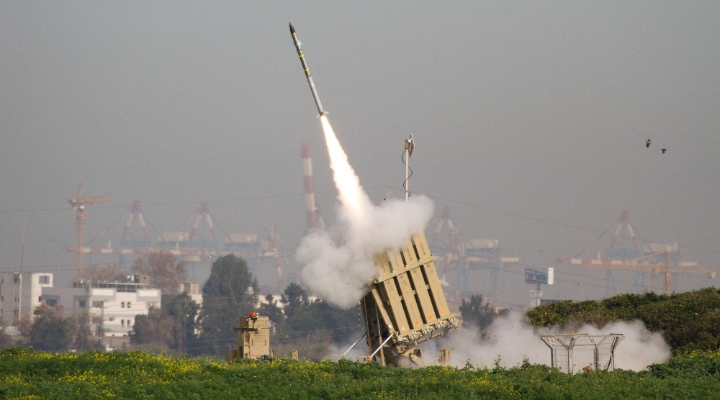
The link between conflict and profit is not as simple as the investing public may occasionally imagine, Morningstar analysts have said, amid a major escalation of violence in the Middle East.
European defence stocks have been on an almost universal upwards tear following Hamas's incursion into Israel early on Saturday, leading portfolio managers and analysts to examine the potential long-term effects of a more protracted conflict in the region.
Should I Buy Defence Stocks?
But Morningstar equity analyst Nicholas Owens says the two arguments used to justify buying defence stocks immediately may not hold as much water as people think.
"We see October 9's sudden price increase in defence stocks as an overblown and simplistic reaction to the outbreak of war in Israel and Gaza," he says.
"As we have pointed out before, the dots between military combat and the profit of a defense contractor do not connect nearly as directly as they seem to in the investing public's imagination.
"We will not alter our ratings or valuations of defence contractors in light of this news, and we believe long-term development and resupply of missile defense technology are already baked sufficiently into our forecasts."
He adds that investors can already price in increased defence spending.
"We hear two narratives used to justify snap purchases of defence contractors, and neither holds much fundamental water in our view," he says.
"First, the narrative that combat today leads to more purchases of weapons manufactured by a given firm and makes that company's stock worth more ignores how long in advance militaries procure weapons, subject to strategic and political constraints.
"Second, the broader narrative that sudden fighting in a geopolitical hotspot increases geopolitical instability, defence budgets, and thus defence contractor revenue is more logically sound but, in our view, the US defense strategy pivot in 2017 to great power rivalry and Russia's invasion of Ukraine in 2022 support this story and we don't see incremental upside to global defense spending."
Which Defence Stocks Are Undervalued?
Among the defence stocks to have benefited from the situation is BAE Systems, which is the UK's largest manufacturer. Yesterday its shares role another 1.2% on the view that conflict would be good for business. It produces everything from GPS communications products to boats and Naval canons, and has just won a trilateral contract to manufacture next-generation nuclear submarines for the South China Sea-oriented AUKUS pact.
In August, Morningstar analysts maintained their Wide Moat Rating on the company, while raising their Fair Value Estimate for its stock to £11.70 per share, reflecting an environment of higher defence spending over the medium term.
Today, however, Owens says the leap between the situation in Israel and the belief that BAE Systems will stand to benefit specifically from events in the region is a big one.
"Live footage of Israel's domestically-developed short-range missile defence system referred to as the 'iron dome' demonstrates capabilities most closely associated with RTX's and BAE Systems' munitions portfolios, neither of which exceed 10% of company revenue," he says.
"And as with Ukraine, when combat depletes munition stockpiles, they will be resupplied from allies' existing stockpiles with zero impact to the manufacturer that previously delivered them. Eventual orders for more of the weapons may come, if current production rates will not refill stockpiles in time, but adding capacity is expensive and time consuming, and thus not a bullish outcome in our view."
In use since 2011, the Iron Dome is a mobile collection of surface-to-air rocket launchers distributed across 10 "batteries" throughout Israel.
As for defence giant RTX, which makes missiles and targeting systems. It sits among the major US defence companies Morningstar analysts believe are undervalued.
Read our two-part report on the DSEI, one of the world's largest defence exhibitions, featuring reflections on defence spending and politics within the Ministry of Defence
















